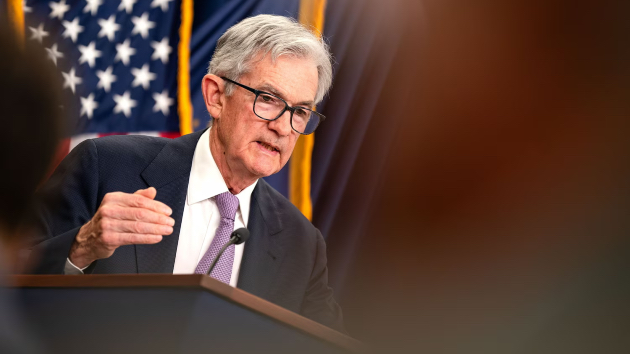Why the August jobs report bodes well for the inflation fight, according to economists
Written by ABC Audio All Rights Reserved on September 1, 2023

(NEW YORK) — The U.S. hiring spree slowed in recent months as employers took on fewer workers and provided smaller wage increases, government data released on Friday showed.
Hiring held steady in August as the U.S. economy added 187,000 jobs, according to a report from the Bureau of Labor Statistics.
While the unemployment rate remains historically low, it ticked up to 3.8% last month. A sharp downward revision of job growth estimates in June and July lowered those totals by a combined 110,000 jobs.
The mildly bad news for workers bodes well for the nation’s fight against inflation, since in theory the looser jobs market and slower pay hikes take pressure off of companies that may otherwise need to charge higher prices as means of addressing ballooning labor costs, economists said.
“The labor market overall is continuing to soar at an ideal cruising altitude — high enough to keep the unemployment rate low while creating more opportunities for workers to come in off the sidelines, but low enough so as not to cause a resurgence of inflation,” Julia Pollak, chief economist at ZipRecruiter, said in a statement on Friday.
The fresh hiring data arrived more than a month after the Federal Reserve raised its benchmark interest rate another quarter of a percentage point, reviving its aggressive inflation fight despite a slowdown of price hikes.
Inflation stands well below its peak last summer of over 9% but remains more than a percentage point higher than the Federal Reserve’s target rate. Price increases accelerated slightly in July, suggesting a bumpy road toward bringing costs down to normal levels.
The jobs report released on Friday “will likely be welcomed by Fed officials,” Gregory Daco, chief economist at global consulting firm EY, said in a statement.
In remarks made at an economic conference in Jackson Hole, Wyoming, last week, Fed Chair Jerome Powell said bringing inflation down to normal levels would require a loosening of the labor market.
Powell described the recent slowdown in hiring as a “rebalancing” of supply and demand for workers, which allows businesses to ease pay increases and in turn soften price hikes.
“We expect this labor market rebalancing to continue,” Powell said.
Over a yearlong period ending in August, average hourly earnings increased 4.3%, which remains robust but marks a slight slowdown from year-over-year wage gains in the previous month, the latest jobs report showed. Pay increases continue to exceed the inflation rate.
Speaking at the White House on Friday, President Joe Biden touted the solid wage increases, saying he believes price hikes can slow without a decline in pay or an increase in unemployment.
“Remember, some experts said to get inflation under control, we needed higher unemployment and lower wages,” Biden said. “But I’ve never thought that it was the problem that too many people have a job or that working people are making too much money.”
Still, the mild cooldown of pay increases could help the U.S. bring down inflation while averting a recession — an outcome known as a “soft landing,” Aaron Terrazas, chief economist at Glassdoor, said in a statement. But the declining wage gains could hurt some household budgets, he added.
“The economy may still be on a glide path to a soft landing, but it may not feel cushy to communities accustomed to more,” Terrazas said.
The next decision from the Federal Reserve about a possible rate increase will take place in roughly three weeks.
An additional rate hike could help bring down prices by further slowing the economy and reducing demand, but the move risks ultimately tipping the U.S. into a recession.
The August jobs report should nudge the Fed toward a decision that leaves its benchmark interest rate unchanged, since the loosening labor market suggests that an economic slowdown has already taken hold, said Daco.
Jeffrey Roach, chief economist at LPL Financial, offered a similar observation, noting that data released earlier this month showed a decline in job openings in keeping with a labor market slowdown.
Taken together, the recent jobs data “gives the Fed some leeway to take a pause later this month,” Roach said.
Last week, Powell said a mixture of economic data will inform its next rate-hike decision, noting that economic trends can prove difficult to assess.
“As is often the case, we are navigating by the stars under cloudy skies,” Powell said. “We will proceed carefully.”
Copyright © 2023, ABC Audio. All rights reserved.





